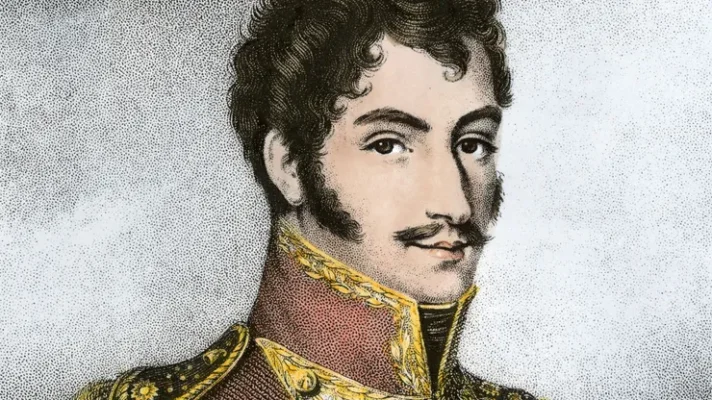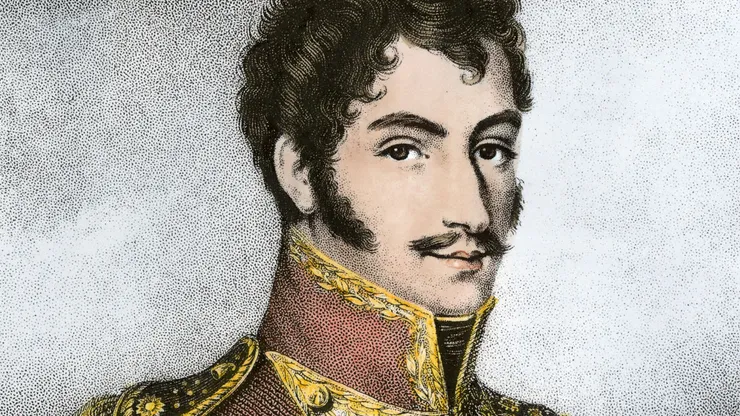Introduction: A Visionary Leader for Latin America
Simón Bolívar is one of the most prominent figures in Latin American history, often referred to as “El Libertador” (The Liberator). His efforts in the early 19th century were crucial in the independence movements that freed several Latin American countries from Spanish rule. Bolívar’s story is not just one of military victories but also of bold ideals and a vision for a united Latin America. His life remains an inspiration for generations, and his influence continues to resonate today.
Early Life and Background
Simón José Antonio de la Santísima Trinidad Bolívar Palacios y Blanco was born on July 24, 1783, in Caracas, Venezuela. Born into an aristocratic family, Bolívar had the privilege of wealth and a solid education. However, his early life was marked by tragedy. His parents, both wealthy landowners, died when Bolívar was still a young child. This left him an orphan and set the stage for his eventual journey toward becoming a leader.
Bolívar’s early education was shaped by his time in Caracas and later in Europe. He was tutored by private instructors and had access to a broad spectrum of classical knowledge. It was during these formative years that Bolívar became exposed to the ideals of the Enlightenment, ideas that would significantly influence his later life and political decisions.
The Journey to Europe
At the age of 16, Bolívar was sent to Europe by his family. This journey was not just a travel experience but a crucial turning point in Bolívar’s development as a leader. He witnessed firsthand the tumultuous political landscape of Europe, especially during the rise of Napoleon Bonaparte. Bolívar admired Napoleon for his ability to mobilize people and his revolutionary ideals, but he also grew critical of Napoleon’s authoritarian approach.
In Paris, Bolívar spent time with leading intellectuals and thinkers, further strengthening his beliefs in liberty, equality, and fraternity. The time spent in Europe helped crystallize Bolívar’s vision for Latin America—a vision where freedom from colonial oppression could be achieved.
The Awakening of a Revolutionary Leader
After returning to Venezuela in 1807, Bolívar began to embrace the revolutionary cause. Venezuela, along with many other parts of Latin America, was under the oppressive rule of the Spanish crown, and Bolívar became increasingly determined to bring about change. His military career started in earnest as he joined local revolutionary forces and began organizing efforts to push back against Spanish rule.
Bolívar’s first steps into the world of revolutionary leadership came with his involvement in the early battles for independence. His leadership skills quickly became apparent as he proved to be a charismatic and strategic military commander.
The Wars of Independence
The wars of independence across Latin America were long and grueling. Bolívar played a pivotal role in the campaigns that eventually led to the independence of modern-day countries like Venezuela, Colombia, Ecuador, and Peru. His military genius and unyielding commitment to the cause of liberty won him the admiration of many.
One of his most notable achievements was the Battle of Boyacá in 1819, a decisive victory that ensured the success of the independence movement in Colombia. Bolívar’s military efforts continued to grow, culminating in the liberation of large swaths of South America from Spanish domination.
Bolívar’s Vision for Latin America
Simón Bolívar was not just fighting for the freedom of individual nations; he had a grand vision of a united Latin America. Bolívar dreamed of a confederation of Latin American nations, a united bloc that could stand as a powerful force in the world, free from colonial influence. This dream led to the creation of Gran Colombia, an ambitious project that aimed to unite modern-day Colombia, Venezuela, Ecuador, and Panama.
However, Bolívar’s vision was met with political resistance. While the people of Latin America were united in their desire for independence, there was little agreement on how to structure the post-colonial states. Bolívar’s dream of unity slowly crumbled due to political infighting, regional divisions, and the diverse interests of different regions within Gran Colombia.
Bolívar’s Leadership and Political Challenges
As president of Gran Colombia, Bolívar faced immense challenges. While he was able to secure independence, managing the vast territories and balancing the competing interests of various factions proved to be a monumental task. Bolívar struggled with the internal politics of Gran Colombia, and by 1830, the union had fallen apart, largely due to Bolívar’s inability to reconcile differences between the various regions.
Despite his political setbacks, Bolívar’s influence remained strong throughout the region. He had already secured his place in history as a liberator, even if his political dreams had not fully come to fruition.
Legacy and Influence
Bolívar’s legacy extends far beyond the boundaries of his lifetime. His vision of a free, united Latin America inspired future generations of leaders and revolutionaries. Monuments and statues of Bolívar stand proudly in cities across Latin America, from Venezuela to Ecuador. His name and ideals live on in movements that continue to advocate for social justice, equality, and political unity across the region.
The Bolivarian revolution, named in his honor, remains a cornerstone of political movements in many Latin American countries, aiming to unite and empower the people of the region.

Bolívar’s Final Years
In the final years of his life, Bolívar faced immense personal and political struggles. After the disintegration of Gran Colombia, Bolívar withdrew from public life. Disillusioned by the political realities of the post-independence era, Bolívar spent his last days in seclusion, suffering from both physical illness and political despair.
Simón Bolívar died on December 17, 1830, at the age of 47, a relatively young man whose revolutionary spirit had been crushed by the very political struggles he had hoped to overcome. His death marked the end of an era, but his legacy lived on in the hearts and minds of those who continued to fight for the ideals of freedom and independence.
Conclusion: Bolívar’s Enduring Legacy
Simón Bolívar’s life was one of great triumphs and painful setbacks. As a military leader, he liberated millions of people across Latin America from Spanish colonial rule. His vision of a united Latin America remains an ideal that continues to influence political movements today. Bolívar’s legacy is undeniable, and his contributions to the history of Latin America will never be forgotten.
FAQs
- How did Simón Bolívar contribute to Latin American independence? Bolívar played a crucial role in the liberation of several Latin American countries from Spanish rule, leading military campaigns that secured the independence of Venezuela, Colombia, Ecuador, Peru, and Bolivia.
- What were Bolívar’s main goals during his leadership? Bolívar aimed to achieve independence for Latin American countries and to create a unified, federated Latin America, known as Gran Colombia.
- Where can we see monuments to Bolívar today? Bolívar is commemorated in numerous statues, monuments, and public spaces throughout Latin America, including in cities like Caracas, Bogotá, Quito, and Lima.
- How did Bolívar’s European travels influence his leadership? Bolívar’s exposure to European revolutionary ideas, especially in Paris and his admiration for Napoleon, greatly influenced his political and military strategies for Latin American independence.
- What were Bolívar’s challenges after the wars of independence? After the wars of independence, Bolívar faced political challenges, including managing the fragile unity of Gran Colombia, which ultimately collapsed due to internal divisions.

